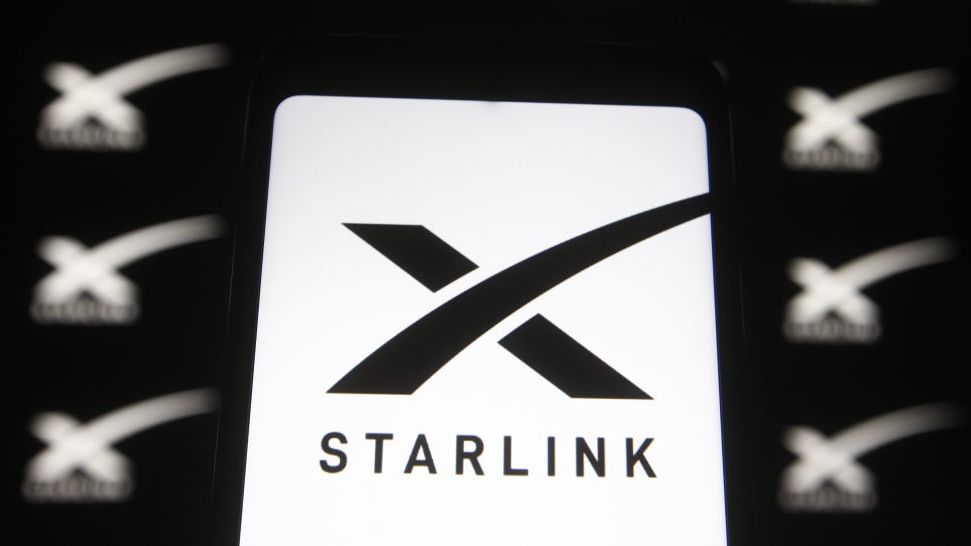SpaceX bug bounty offers up to $25,000 per Starlink exploit
The spacecraft manufacturer has offered white hats immunity to exploit a wide range of Starlink systems, with a dedicated report page


SpaceX is offering between $100 and $25,000 in bounties to hackers who report exploits to the company through their website.
The spacecraft manufacturer has set up a dedicated page on crowdsourced bug bounty platform Bugcrowd, giving would-be white hats a centralised method for reporting un-patched SpaceX and Starlink exploits.
RELATED RESOURCE

Introducing IBM Security QRadar XDR
A comprehensive open solution in a crowded and confusing space
Hackers who submit reports on network vulnerabilities can expect up to $10,000, while on a “case-by-case” basis those who discover and report vulnerabilities with Starlink dishes, satellites or other such hardware can receive up to $25,000.
According to its Bugcrowd page, SpaceX has so far rewarded 41 vulnerability reports, at an average of $972 each. A more comprehensive list of prices per type of vulnerability discovered can be found on the page, but SpaceX specifically forbids physical tampering with its infrastructure or that of Starlink’s, as well as testing that could directly impact its services.
In a document shared by SpaceX titled ‘Starlink welcomes security researchers (bring on the bugs), the company outlines its position on bug bounties.
“We allow responsible security researchers to do their own testing, and we provide monetary rewards when they find and report vulnerabilities,” states the document.
“We recognize and appreciate the support of the broader security community in making Starlink better and more secure. We encourage researchers to test Starlink for security issues in a non-destructive way and to report their findings through our bug bounty program.”
Get the ITPro daily newsletter
Sign up today and you will receive a free copy of our Future Focus 2025 report - the leading guidance on AI, cybersecurity and other IT challenges as per 700+ senior executives
SpaceX further states that it considers vulnerability research within its bug bounty policies to be exempt from Digital Millennium Copyright Act (DMCA) claims, legal action as a result of Computer Fraud and Abuse Act (CFAA) violation, and SpaceX terms and conditions that would interfere with research.
Bug bounties are a popular form of publicly-sourced testing for companies, that offer white hat hackers lucrative rewards and permission to attempt to hack some of the most challenging commercial security systems, in return for information on any vulnerabilities that they discover.
In June, an employee working for the vulnerability coordination platform HackerOne was found to have been stealing and re-submitting bug bounties for personal profit and was subsequently fired.
The Starlink constellation, which aims to provide satellite broadband access to customers worldwide, is rapidly growing. With over 2,500 satellites currently in orbit and an end goal of 12,000 having been approved by the FCC, it is a frontrunner in the growing race for satellite internet dominance, which has already spawned disagreements as well as interest from agencies such as DARPA.

Rory Bathgate is Features and Multimedia Editor at ITPro, overseeing all in-depth content and case studies. He can also be found co-hosting the ITPro Podcast with Jane McCallion, swapping a keyboard for a microphone to discuss the latest learnings with thought leaders from across the tech sector.
In his free time, Rory enjoys photography, video editing, and good science fiction. After graduating from the University of Kent with a BA in English and American Literature, Rory undertook an MA in Eighteenth-Century Studies at King’s College London. He joined ITPro in 2022 as a graduate, following four years in student journalism. You can contact Rory at rory.bathgate@futurenet.com or on LinkedIn.
-
 Bigger salaries, more burnout: Is the CISO role in crisis?
Bigger salaries, more burnout: Is the CISO role in crisis?In-depth CISOs are more stressed than ever before – but why is this and what can be done?
By Kate O'Flaherty Published
-
 Cheap cyber crime kits can be bought on the dark web for less than $25
Cheap cyber crime kits can be bought on the dark web for less than $25News Research from NordVPN shows phishing kits are now widely available on the dark web and via messaging apps like Telegram, and are often selling for less than $25.
By Emma Woollacott Published
-
 Hackers are targeting Ivanti VPN users again – here’s what you need to know
Hackers are targeting Ivanti VPN users again – here’s what you need to knowNews Ivanti has re-patched a security flaw in its Connect Secure VPN appliances that's been exploited by a China-linked espionage group since at least the middle of March.
By Emma Woollacott Published
-
 Broadcom issues urgent alert over three VMware zero-days
Broadcom issues urgent alert over three VMware zero-daysNews The firm says it has information to suggest all three are being exploited in the wild
By Solomon Klappholz Published
-
 Nakivo backup flaw still present on some systems months after firms’ ‘silent patch’, researchers claim
Nakivo backup flaw still present on some systems months after firms’ ‘silent patch’, researchers claimNews Over 200 vulnerable Nakivo backup instances have been identified months after the firm silently patched a security flaw.
By Solomon Klappholz Published
-
 Everything you need to know about the Microsoft Power Pages vulnerability
Everything you need to know about the Microsoft Power Pages vulnerabilityNews A severe Microsoft Power Pages vulnerability has been fixed after cyber criminals were found to have been exploiting unpatched systems in the wild.
By Solomon Klappholz Published
-
 Vulnerability management complexity is leaving enterprises at serious risk
Vulnerability management complexity is leaving enterprises at serious riskNews Fragmented data and siloed processes mean remediation is taking too long
By Emma Woollacott Published
-
 A critical Ivanti flaw is being exploited in the wild – here’s what you need to know
A critical Ivanti flaw is being exploited in the wild – here’s what you need to knowNews Cyber criminals are actively exploiting a critical RCE flaw affecting Ivanti Connect Secure appliances
By Solomon Klappholz Published
-
 Researchers claim an AMD security flaw could let hackers access encrypted data
Researchers claim an AMD security flaw could let hackers access encrypted dataNews Using only a $10 test rig, researchers were able to pull off the badRAM attack
By Solomon Klappholz Published
-
 A journey to cyber resilience
A journey to cyber resiliencewhitepaper DORA: Ushering in a new era of cyber security
By ITPro Published